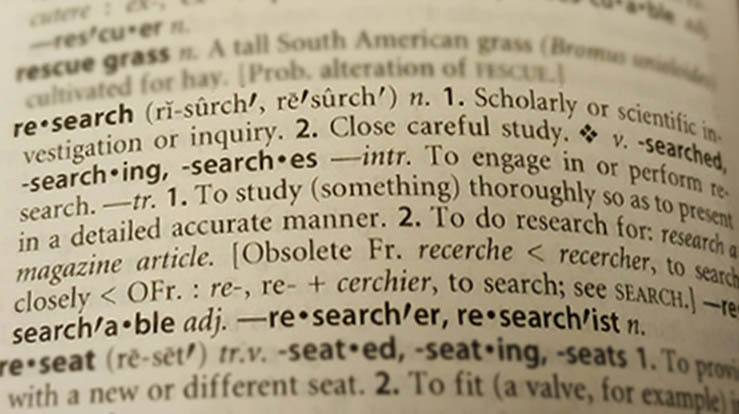New journalism course addresses an important need in society--better communication about science and research
September 20, 2016
An innovative mass communications course aims to prepare students to explain science to the world. The new course tackles the complexities of science journalism from perspectives of both the reporter/writer/editor and also from the creator/inventor/researcher.
The course also breaks down some walls of the traditional classroom experience: Two sessions are open to the public. One is a panel presentation by top national science writers. The second is an intensive workshop for grad students in science fields of study. In addition Google hanouts with national science writers are also open to anyone interested.
How do you accurately report scientific results or progress for non-expert information consumers? How can a researcher clearly explain the work to mass media audiences? These are among the thorny questions students are exploring in this hybrid course (MAC 491) funded by a Quest Innovation Grant.
The course is a first on at least three levels.
It is a collaboration between the Robertson School of Media and Culture and VCU Libraries. Professor Jeff South is teaching how to write news stories about the environment, health and medicine, technology and other scientific subjects. The syllabus states that: “For journalism students, the class will help you think like a scientist; for science students, it will help you think like a journalist. And for all students, the course will help you communicate often-complex scientific discoveries to a mass audience.”
Understanding must precede writing and publishing. To that end, students are learning research strategies of their own. Librarians are teaching them how to tap library resources and find credible sources to fact-check, explore nuances, read data correctly, understand scientific methods, as well as identify gaps in research areas and grasp the context of scientific discoveries.
Subject matter specialist librarians from both the Monroe Park Campus and the MCV Campus are teaching these sessions, which have been crafted by Cabell Library's She is the principal investigator on the Quest grant and is co-teaching MASC 491 with South. The course promises to give students a firm grounding in how to research scientific topics.
Secondly, as the first such course offered at Virginia Commonwealth University, the class addresses an important need in society and in the academy -- better communication about science. It innovates in that the brings together undergraduates and graduate students in an intensive workshop. And, it blends blends theory with practice. The class will publish an online magazine, The Scope, featuring students’ stories about science.
And, thirdly, MASC 491 is opening learning opportunities usually reserved for the seminar room to the broader community.
Reporting Science to the World: The State of Science Journalism, a panel discussion with national science writers, will be held Oct. 13, 6-7:30 p.m. in Cabell Library Room 250. Presenting about reporting science and why science literacy matters will be: Tim Appenzeller (National Geographic, Science, Nature); Erika Engelhaupt (National Geographic, Science News, NPR); Tammie Smith (Richmond Times-Dispatch) and Tim Wheeler (The Baltimore Sun and The Bay Journal). Sign up to attend. Jeff South and Tim Bajkiewicz, associate professors in the Robertson School, and Sara Williams, head of academic outreach at Cabell Library, will moderate.
Share Your Research Beyond Academia: A Writing Workshop for Graduate Students will be held on two days, Nov. 4-5, 1-5 p.m. and 9 a.m.-1 p.m., at Cabell Library, Room 250. Graduate students will sign up in advance for one-on-one writing coaching sessions with participants in the science journalism class. Students will help STEM grad students craft a new story, press release, poster or grant proposal abstract in clear journalistic style. The students will suggest ways grad students can make their work understandable and accessible to non-specialists. The workshops will also include a presentation on scholarly communications and options for distributing information about research to broad audiences. Registration will be open soon.
Google Hangouts with Award-winning Science Writers are scheduled throughout the fall. These sessions will explore challenges and new directions in reporting scientific research beyond academia and into public conversations about ecology, medicine, technology, social science issues, and more. To access these hangouts, in real time or recorded afterward, visit https://rampages.us/sciencejournalism/. Each Hangout will begin at 2 p.m. and run for one hour.
- Sept. 22 -- Virginia Hughes is the science editor at Buzz Feed News and a visiting scholar at New York University. Hughes specializes in neuroscience, genetics, behavior and medicine. She has written for The Atlantic, The New York Times, The New Yorker and Slate.
- Oct. 4 -- Michelle Nijhuis is a self-proclaimed “lapsed biologist” who concentrates on conservation and global transformation. Nijhuis writes for National Geographic, The New Yorker and is a regular contributor to the award-winning blog, The Last Word on Nothing. Her work appears in Best American Science Writing and Best American Science and Nature Writing.
- Nov. 1 -- John Horgan writes the Cross-Check Blog for Scientific American and is Director of the Center for Science Writings at Stevens Institute of Technology. Horgan has written for The New York Times, National Geographic, The Washington Post, Slate, and other publications. He is the author of three books, including The Undiscovered Mind, a finalist for the 2000 British Mind Book of the Year.
- Dec. 1 -- Will Harlan wrote a best-selling account of the life and work of Carol Ruckdeschel, a self-trained naturalist. Untamed is the story of Ruckdeschel’s work saving sea turtles on Cumberland Island. Harlan is editor-in-chief of Blue Ridge Outdoors, and has also written for National Geographic Adventure, Sports Illustrated and The Wall Street Journal.
 Chat
Chat